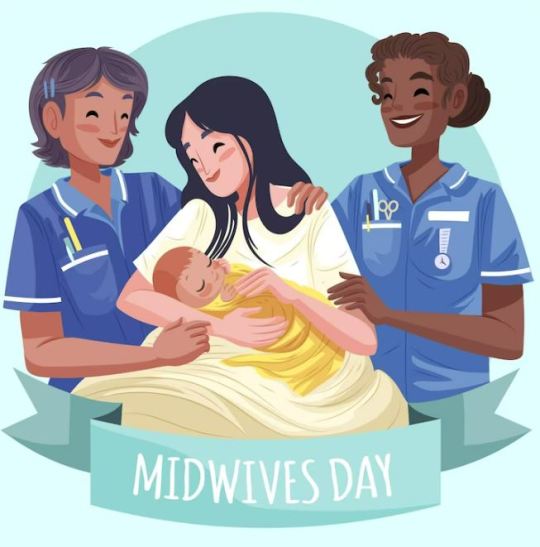Text
Professional Midwife Leadville

A professional midwife Leadville is a healthcare professional who specializes in providing care and support to women during pregnancy, childbirth, and the postpartum period. Midwives are trained to handle normal, low-risk pregnancies and births, and they work in collaboration with obstetricians and other healthcare providers to ensure the health and well-being of both the mother and the baby.
The responsibilities of a professional midwife can vary depending on their scope of practice and the regulations in their specific jurisdiction. However, some common roles and tasks of midwives include:
Prenatal Care: Midwives provide comprehensive prenatal care, including regular check-ups, monitoring the health of the mother and the baby, conducting physical examinations, ordering tests and ultrasounds, and offering guidance on nutrition, exercise, and other aspects of prenatal health.
Labor and Delivery: Midwives are trained to assist and support women during labor and childbirth. They provide emotional and physical support, monitor the progress of labor, administer pain relief measures (such as breathing techniques, relaxation techniques, or medications), and facilitate the birthing process.
Postpartum Care: Midwives continue to provide care to mothers and babies after childbirth. This includes monitoring the recovery of the mother, assessing the health and development of the baby, providing breastfeeding support, offering guidance on newborn care and postpartum issues, and addressing any concerns or complications that may arise.
Education and Counseling: Midwives play a crucial role in educating women and their families about pregnancy, childbirth, and postpartum care. They provide information on healthy lifestyle choices, birth options, breastfeeding, infant care, and contraceptive methods. They also offer emotional support and counseling to address the physical, emotional, and social needs of the mother and her family.
Collaboration and Referrals: Midwives work in collaboration with other healthcare professionals, such as obstetricians, pediatricians, and nurses. They may consult or refer to specialists if complications arise or if medical interventions are necessary.
It's important to note that the regulations and requirements for becoming a professional midwife can vary across different countries and regions. In some places, midwives may require certification, licensure, or registration to practice legally. The specific educational pathways and training programs can also vary, ranging from diploma programs to bachelor's or master's degrees in midwifery.
#Travel Midwife Salida#Empowering Women and Ensuring Safe Births#Why choose a Professional Midwife?#Sora Midwifery Community#Benefits of Midwifery Care#Global Perspective on Midwifery#Who is a Professional Midwife?
0 notes
Text
Postpartum Midwife Leadville - Sora Midwifery

A postpartum midwife is a healthcare provider who specializes in caring for women during the postpartum period, which is the time after childbirth. The postpartum midwife provides support and care to new mothers, helping them to recover physically and emotionally after giving birth.
The role of a postpartum midwife may include monitoring the physical health of the mother, providing breastfeeding support, assisting with infant care, providing education and counseling on postpartum recovery and newborn care, and identifying and addressing any postpartum complications or concerns.
Postpartum midwives may work in a variety of settings, including hospitals, birthing centers, and in the home. They may work independently or as part of a larger healthcare team.
Overall, the goal of a postpartum midwife is to provide comprehensive care and support to new mothers during a vulnerable time in their lives, promoting their health and well-being and ensuring a smooth transition to parenthood.
Visit Site: https://soramidwifery.com/
#midwife services salida#local midwife in salida#home midwifery salida#certified midwife salary#postpartum midwife salida
0 notes
Text
Midwife Services Salida

Midwifery services are an essential part of maternal healthcare, providing support to women during pregnancy, labor, and postpartum. Midwives are skilled healthcare professionals who specialize in providing care to women throughout their reproductive lives, including family planning, gynecological exams, and prenatal care. They work in a variety of settings, including hospitals, clinics, birthing centers, and in-home births.
During pregnancy, midwives monitor the health of the mother and baby, perform routine exams, and provide guidance on healthy habits, such as proper nutrition and exercise. They also prepare women for labor and delivery by teaching breathing and relaxation techniques, and provide emotional support during the process.
During labor and delivery, midwives provide continuous care, monitoring the progress of labor, providing pain relief options, and assisting with delivery. They also offer emotional support to the mother and her partner, helping them to feel comfortable and confident throughout the process.
After birth, midwives provide postpartum care, monitoring the health of both the mother and baby, providing breastfeeding support, and addressing any concerns or issues that may arise.
Midwives are committed to providing personalized care that meets the unique needs of each woman and her family. They promote natural childbirth, but also work closely with medical professionals when interventions are necessary. Their goal is to provide safe, high-quality care that helps women have healthy pregnancies and safe deliveries.
#home birth midwife salida#in person midwife salida#professional midwife salida#midwifery care salida#midwife services salida#local midwife in salida#home midwifery salida
0 notes
Text
5 benefits of midwifery care - Sora Midwifery Community

Midwifery care, which involves providing prenatal, childbirth, and postpartum care to pregnant women and their newborns, can offer several benefits to both mothers and their babies. Here are some of the benefits of midwifery care:
Personalized care: Midwives offer individualized care and support that takes into account a woman's unique needs, values, and preferences. They spend more time with their clients than doctors and can provide emotional and psychological support throughout the pregnancy, birth, and postpartum period.
Lower rates of medical intervention: Midwives promote natural childbirth and are trained to provide non-invasive techniques to manage pain and discomfort during labor. As a result, women under midwifery care have lower rates of medical interventions such as cesarean sections, inductions, and epidurals.
Higher rates of breastfeeding: Midwives promote and support breastfeeding, which is beneficial for both mother and baby. Studies have shown that women under midwifery care have higher rates of breastfeeding initiation and continuation.
Lower maternal and neonatal mortality rates: Midwifery care has been associated with lower rates of maternal and neonatal mortality, especially in low-risk pregnancies. This is because midwives provide continuous monitoring and support during labor and are trained to recognize and manage complications that may arise.
Greater satisfaction with care: Women under midwifery care report higher levels of satisfaction with their prenatal, childbirth, and postpartum care than women under obstetric care. This is because midwives provide personalized and respectful care that prioritizes the woman's needs and preferences.
Overall, Sora Midwifery Community care can offer a safe and satisfying alternative to traditional obstetric care for women with low-risk pregnancies.
#Global Perspective on Midwifery#Certified Professional Midwife#Midwifery Models of Care#Benefits of Midwifery Care
1 note
·
View note